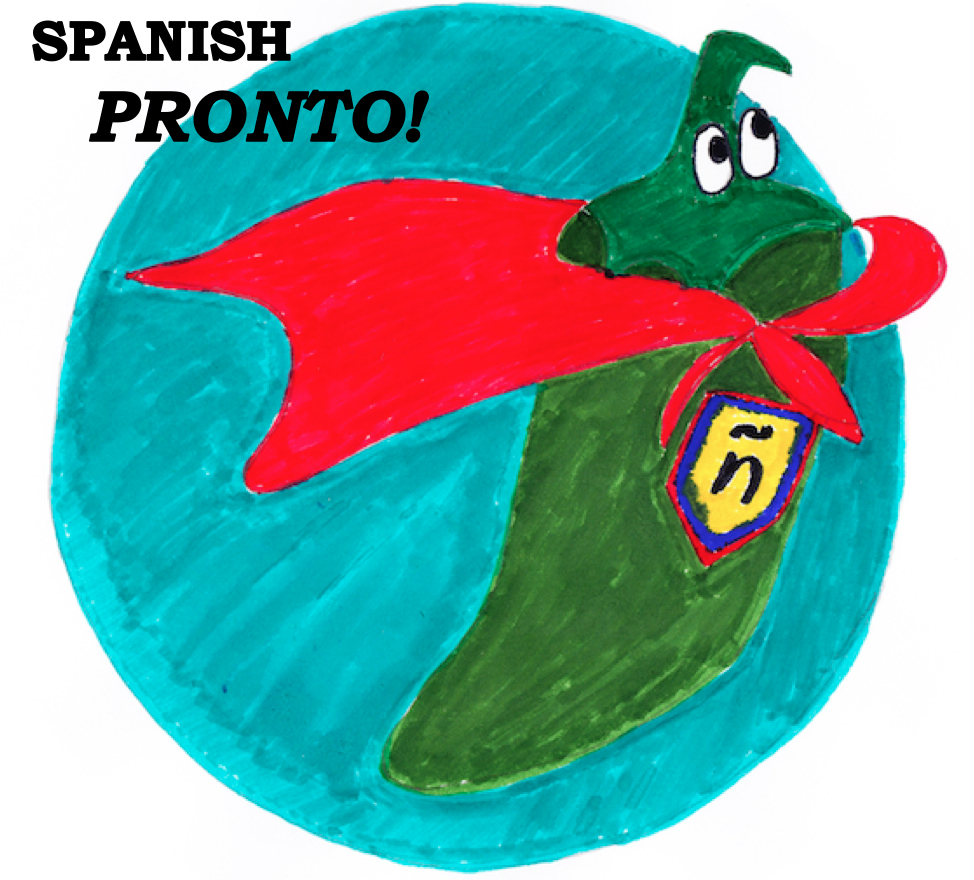
Spanish Vocabulary
Learn 10 Spanish words per day and know 2,500 words after one year!Many words in Spanish and English are similar, but similar words can have very different meanings, so be careful.
quien(es) he who, she who, (they who), (those who), whoever, whomever, who, whomquién(es) who?, whom?, who, whom
cómo how?, how
aquí here
allí there
ahí there; right there; por ahí around there; por ahí de approximately, something around
tal such (tal, tales); tal vez perhaps; ¿qué tal? how are you?, how is it going?
cual like, as; which (cual, cuales); cuál(es) which?
cualquier(a) any, whichever
aquel that _____ over there, those _____ over there; that one over there, those ones over there; that/those (aquel, aquellos, aquella, aquellas); aquello n. that; that thing
Words pronunciation: 0:54 (54s)
"Quien(es)," without an accent, is used to mean "(someone) who." "Quién(es)," with an accent, is a question word, used to ask or express uncertainty about the person(s) intended (of a set of persons).
"Como," without an accent, is used to mean "like, as." "Cómo," with an accent, is a question word, used to ask or express uncertainty about the manner in which something is done.
'Aquí' is 'here,' 'allí' is 'there' (but not far away), and 'allá' is 'over there' (farther away). 'Ahí' is 'right there/around there' (a certain location, area, or range).
'Ahí' can be used when someone is scratching just the right spot (on your back, for example)
"Cual(es)," without an accent, is used to mean "like, as" in literary style ("como" is more common in everyday language) or "which" (in a pronominal sense, often expressed in Spanish as 'the which' [el cual, la cual, los cuales, las cuales, n. lo cual]).
"Cuál(es)," with an accent, is a question word, used to ask or express uncertainty about the person(s) or item(s) intended (of a set of persons or items) or to imply a choice among possibilities.
tal cual = as is, just the way it is
'Cualquier(a)' means 'whichever/any that you/one might want.' 'Cualquier' is used before a noun; 'cualquiera' is used after a noun.
'This/these, that/those, that/those over there' is expressed in Spanish as 'este, ese, aquel; esta, esa, aquella; estos, esos, aquellos; estas, esas, aquellas; n. esto, eso, aquello.' In texts written in 2010 and before, under the old rules, many of these words were sometimes written with an accent. To say 'this dog,' you would say 'este perro,' but to say 'this one,' you would say 'éste.' Nowadays, though, 'this one' would be written without the accent: 'este.'
The neuter forms 'esto,' 'eso,' and 'aquello' are used when discussing a preceding idea or sentence, or something abstract. 'This [i.e., this thing I just said] should be obvious.' ('Esto debe ser obvio.')
quien con perros se acuesta, con pulgas se levanta he who lies down with dogs gets up with fleasno se sabe aun quién va a ir it is still not known who is going to go ('not it is known still…')
¿cómo me veo? how do I look?
pónganme la mesa aquí, el armario allí y el piano allá put the table here for me, the wardrobe there, and the piano over there
por ahí van los tiros that's the general idea ('around there are going the gunshots')
tal fue su decepción que al fin decidió no ir such was her disappointment that, in the end, she decided not to go
llevaba un sombrero, en el cual había puesto un clavel he was wearing a hat, in which he had placed a carnation ('…in the which…')
me da igual; cualquier día estaría bien it is all the same to me ('to me it gives the same'); any day would be fine
parecía un día cualquiera it seemed like any (ordinary) day
en aquella época el correo llegaba por caballo in those days the mail used to arrive by horse
Examples pronunciation: 0:53 (53s)
© 2017-2018 Chris Marquardt, Spanish Pronto
http://www.spanishpronto.com/vocabulary_0001.html
http://www.spanishpronto.com/vocabulary_0002.html
http://www.spanishpronto.com/vocabulary_0003.html
http://www.spanishpronto.com/vocabulary_0004.html
http://www.spanishpronto.com/vocabulary_0005.html
http://www.spanishpronto.com/vocabulary_0006.html
http://www.spanishpronto.com/vocabulary_0007.html
http://www.spanishpronto.com/vocabulary_0008.html
http://www.spanishpronto.com/vocabulary_0009.html
http://www.spanishpronto.com/vocabulary_0010.html
http://www.spanishpronto.com/vocabulary_0011.html
http://www.spanishpronto.com/vocabulary_0012.html
http://www.spanishpronto.com/vocabulary_0013.html
http://www.spanishpronto.com/vocabulary_0014.html
http://www.spanishpronto.com/vocabulary_0015.html
http://www.spanishpronto.com/vocabulary_0016.html
http://www.spanishpronto.com/vocabulary_0017.html
http://www.spanishpronto.com/vocabulary_0018.html
http://www.spanishpronto.com/vocabulary_0019.html
http://www.spanishpronto.com/vocabulary_0020.html
http://www.spanishpronto.com/vocabulary_0021.html
http://www.spanishpronto.com/vocabulary_0022.html
http://www.spanishpronto.com/vocabulary_0023.html
http://www.spanishpronto.com/vocabulary_0024.html
http://www.spanishpronto.com/vocabulary_0025.html
http://www.spanishpronto.com/vocabulary_0026.html
http://www.spanishpronto.com/vocabulary_0027.html
http://www.spanishpronto.com/vocabulary_0028.html
http://www.spanishpronto.com/vocabulary_0029.html
http://www.spanishpronto.com/vocabulary_0030.html
http://www.spanishpronto.com/vocabulary_0031.html
http://www.spanishpronto.com/vocabulary_0032.html
http://www.spanishpronto.com/vocabulary_0033.html
http://www.spanishpronto.com/vocabulary_0034.html
http://www.spanishpronto.com/vocabulary_0035.html
http://www.spanishpronto.com/vocabulary_0036.html
http://www.spanishpronto.com/vocabulary_0037.html
http://www.spanishpronto.com/vocabulary_0038.html
http://www.spanishpronto.com/vocabulary_0039.html
URL for this page: http://www.spanishpronto.com/vocabulary_0021.html